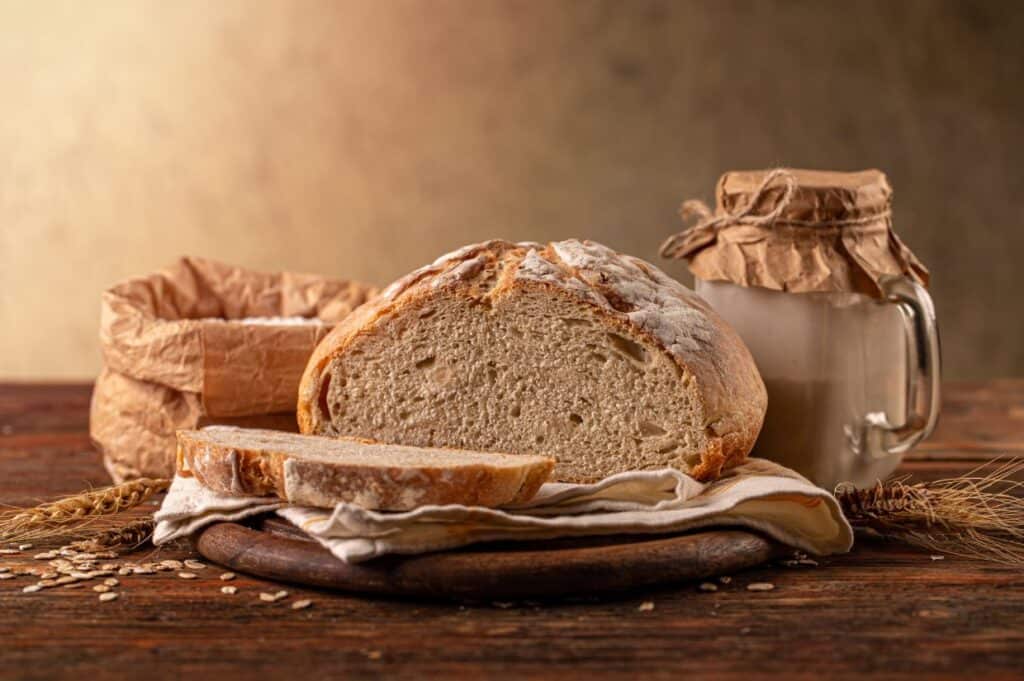Artisanal food has a rich history, originating centuries ago when communities heavily relied on local producers for their daily meals. Local butchers, bakers and cheesemakers were essential members of the community, providing freshly baked bread, handcrafted cheeses and cured meats made with care. This deep-rooted connection between consumers and producers highlighted the importance of supporting local economies.

Handcrafted with simple ingredients
The hallmark of artisanal food lies in its distinctive taste profiles derived from carefully selected ingredients and time-honored methods. These foods are meticulously crafted by skilled artisans who pour their expertise and passion into each batch. For example, artisanal cheeses produced by local dairy farmers using age-old techniques result in distinct flavors that mass-produced cheeses lack.
Artisans often source natural ingredients, steering clear of artificial additives commonly found in commercial products. This commitment to purity ensures that consumers enjoy wholesome and authentic flavors without synthetic enhancements.
Prioritizing quality and ethical practices
The Industrial Revolution marked a significant shift in food production as mass-produced goods flooded the market. This era saw the rise of canned foods, processed meats and factory-made products that prioritized efficiency over quality.
Artisanal food enthusiasts advocate for going back to small-scale producers and aim to reconnect consumers with the origins of their food. By purchasing from local farmers markets, individuals can support their communities while enjoying fresh, seasonal produce. This movement emphasizes the importance of sustaining local economies by empowering farmers and preserving traditional culinary techniques.
When it comes to artisanal foods, quality trumps convenience or cost. Ethical production practices are highly valued among artisans who prioritize flavor and health benefits over mass production methods. Whether it’s a cozy coffee shop serving locally roasted beans in an iced Americano or a local restaurant offering hand-crafted chorizo in a fish stew, these establishments share a commitment to providing customers with ethically sourced ingredients.
Making artisanal foods
Artisanal foods are crafted in small batches to ensure quality and attention to detail. This approach allows food producers to maintain high standards throughout the manufacturing process. By focusing on limited quantities, artisans can carefully monitor each step, resulting in consistent and top-notch products.
Many artisans adhere to age-old recipes and production methods that have been handed down through generations. These traditional techniques play a crucial role in preserving authenticity and creating unique flavors that set artisanal foods apart from mass-produced alternatives.
Unlike mass-produced foods that are quickly churned out in large quantities with the help of machines and additives, artisans take their time to create these delicacies. This hands-on approach results in products that offer superior quality and flavor, making them popular among discerning consumers who value authenticity.
Benefits of artisanal foods
Choosing artisanal food allows consumers to support local producers, helping to sustain small-scale agriculture. By purchasing from local artisans, individuals contribute directly to their community’s economy.
Artisanal foods are often crafted in smaller batches with meticulous attention to detail, resulting in products that offer a unique and authentic taste experience. Unlike mass-produced foods, artisanal products are known for their superior taste and exceptional quality. In fact, a Maine Business School study determined that consumers found artisanal foods more meaningful.
They can also be a healthier choice for consumers. Many products, like healthy peanut butter brands, are made using organic or ethically sourced ingredients, making them a healthier option for consumers looking to make conscious food choices. These products often contain fewer additives and preservatives commonly found in mass-produced alternatives.
Artisans often source natural ingredients, steering clear of artificial additives commonly found in commercial products. This commitment to purity ensures that consumers enjoy wholesome and authentic flavors without synthetic enhancements. A prime illustration is an artisan Italian bread baked with organic flour, water, salt and yeast.
Industry challenges
Artisanal food producers often struggle with limited distribution networks, hindering their ability to expand beyond local markets. This challenge makes it difficult for small-scale producers to access a broader customer base. Without robust distribution channels, these foods can remain inaccessible to consumers who reside outside of specific regions.
Scaling up production while preserving quality is also a common problem faced by artisans utilizing traditional methods. Balancing an increased output while maintaining the unique flavors and craftsmanship can be demanding. For instance, handcrafted cheeses or baked goods might lose their artisanal touch to accommodate a larger scale.
Final thoughts
Now you’ve got the lowdown on artisanal foods. From their rich history to the challenges they face today, you’ve seen how these handcrafted goodies stand out from the mass-produced crowd. Choosing artisanal is like picking a homemade cake over a store-bought one — it’s all about that extra love and care put into every bite. Next time you’re at the market, give those artisanal treats a try and support local producers.